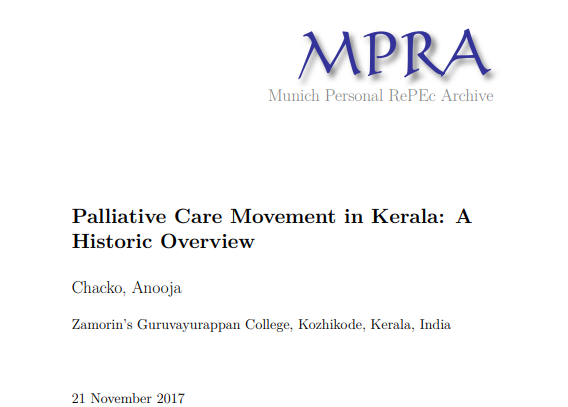Islamic Activism and Palliative Care: An Analysis from Kerala, India
Religion has re-emerged as a significant force in the political and socio-cultural spheres, with growing interest in its intersections with development. This chapter examines the Islamic activism within the palliative care movement in Malappuram, a Muslim-majority district of Kerala, India, against the backdrop of the state's unique developmental model. The institutionalized delivery of palliative care in Kerala, supported by local communities and both religious and non-religious civil society organizations, has evolved into a mass movement. The study highlights the transformative role of Muslim organizations in this initiative, which represents a shift in their social engagement dynamics.
The chapter situates this activism within the broader framework of religious civil society, exploring its interaction with the state amidst neoliberal reforms and decentralization efforts. Kerala's distinctive political and developmental context, including its secular public domain and multi-religious environment, has allowed Muslim activists to play a pivotal role in reshaping social outcomes. The state's adoption of an official palliative care policy reflects the movement's influence in reconfiguring state approaches to healthcare. Additionally, the chapter delves into how Islamic discourses and identity markers were deployed by Muslim activists, navigating inter-religious contestations and theological differences within Islam, ultimately offering insights into the evolving relationship between religion and development in a pluralistic, secular setting.




Comments
Post a Comment